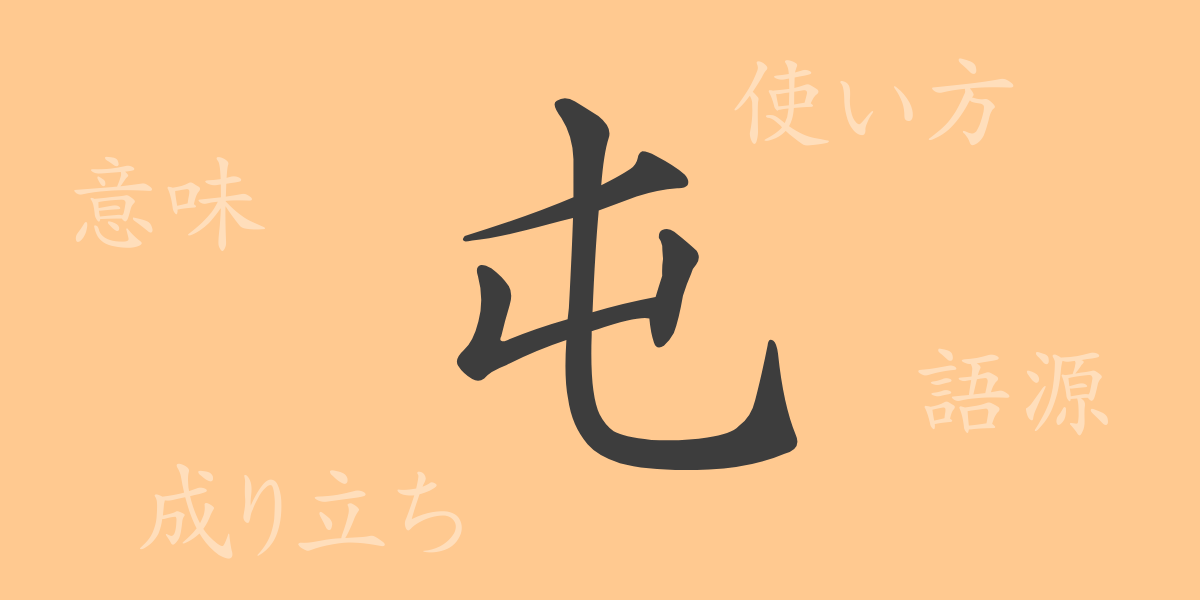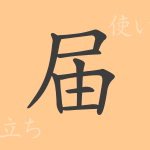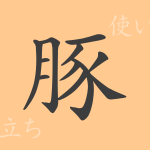Japanese culture is vividly expressed through its unique writing system, Kanji, known for its complexity and beauty. Many Kanji characters are imbued with deep historical and meaningful significance. This article focuses on the less commonly known but significant Kanji ‘屯 (トン)’, exploring its origins, meanings, uses, and expressions that incorporate this character.
Origins of ‘屯 (トン)’
The Kanji ‘屯’ originated in ancient China, used to denote military groups or settlements. It is a phono-semantic compound character, combining the semantic element ‘屮’ and the phonetic element ‘屯’. In seal script, it depicted the image of people gathering, evolving over time into its current form.
Meaning and Usage of ‘屯 (トン)’
‘屯’ conveys meanings such as gathering, loitering, and residing. It is also used in military terms like ‘駐屯地 (ちゅうとんち)’, indicating a place where troops are stationed. In modern Japanese, its use is rare in isolation, mostly seen within specific phrases or compound words.
Readings, Stroke Count, and Radical of ‘屯 (トン)’
Although ‘屯’ is a part of the Japanese Joyo Kanji taught in schools, it is not frequently used. Understanding this Kanji, however, is crucial for deepening comprehension of the Japanese language.
- Readings: On’yomi ‘トン’, no specific Kun’yomi
- Stroke Count: 4 strokes
- Radical: 屮 (たけかんむり)
Phrases, Idioms, and Proverbs Using ‘屯 (トン)’
While not prevalent, there are a few phrases and idioms that include ‘屯’. ‘駐屯 (ちゅうとん)’ refers to the military stationing at a particular place, and ‘屯積 (とんせき)’ means stockpiling goods. These expressions are typically used in specific contexts and are not commonly encountered in everyday conversation.
Conclusion on ‘屯 (トン)’
The Kanji ‘屯’ reflects its ancient history through its form and meanings. As a rare Joyo Kanji, it is mostly used in specific compound words or specialized terms. Nonetheless, such characters illustrate the depth and diversity of the Japanese language, playing a vital role in understanding language and culture. This exploration of ‘屯’ aims to deepen your appreciation of Japanese linguistic charms.

























